
Don't Mess With Mister T. is a Stanley Turrentine album produced by Creed Taylor on his label, CTI. It was arranged by Bob James and recorded at Van Gelder Studio in June 1973.

Fat Albert Rotunda is the eighth album by jazz keyboardist Herbie Hancock, released in 1969. It was Hancock's first release for Warner Bros. Records after his departure from Blue Note Records. The music was originally done for the TV special Hey, Hey, Hey, It's Fat Albert, which later inspired Fat Albert and the Cosby Kids TV show. Fat Albert Rotunda, along with Mwandishi and Crossings was reissued in one set as Mwandishi: The Complete Warner Bros. Recordings in 1994 and as The Warner Bros. Years (1969-1972) in 2014.
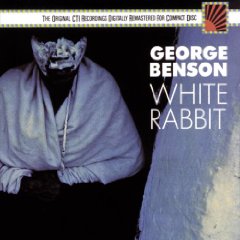
White Rabbit is an album by George Benson. The title track is a cover of the famous Great Society/Jefferson Airplane song by Grace Slick.This album was George Benson's second CTI Records project produced by Creed Taylor and was recorded nine months after Beyond the Blue Horizon.

First Light is an album by jazz trumpeter Freddie Hubbard. Recorded in 1971, it features string arrangements by Don Sebesky. It was his third album released on Creed Taylor's CTI label and features performances by Hubbard, Herbie Hancock, Eric Gale, George Benson, Ron Carter, Jack DeJohnette, Airto Moreira and Richard Wyands. The album is part of a loose trilogy including his two previous records at the time, Red Clay and Straight Life. First Light won a 1972 Grammy Award for "Best Jazz Performance by a Group"

Sky Dive is the twentieth album by jazz trumpeter Freddie Hubbard, recorded in 1972. It was his fourth album released on Creed Taylor's CTI label and features performances by Hubbard, Keith Jarrett, George Benson, Ron Carter, Billy Cobham, Airto Moreira and Ray Barretto.
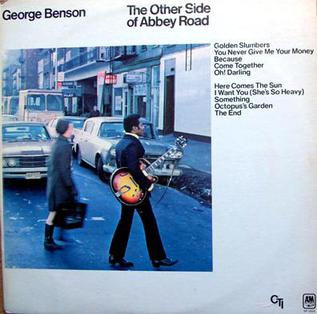
The Other Side of Abbey Road is a 1970 studio album by American guitarist George Benson of songs from the Beatles' 1969 album Abbey Road. It was his last album for A&M Records. The front cover is a photograph of Benson by Eric Meola in E 53rd Street, Midtown East, New York City.

Prelude is the eighth studio album by Brazilian keyboardist Eumir Deodato, released in 1973. With the signature track "Also Sprach Zarathustra (2001)", Prelude would become the most successful recording for Deodato and CTI Records.

Sugar is an album by jazz saxophonist Stanley Turrentine, his first recorded for the CTI Records label following his long association with Blue Note, featuring performances by Turrentine with Freddie Hubbard, George Benson, Ron Carter, and Billy Kaye with Lonnie Liston Smith added on the title track and Butch Cornell and Richard "Pablo" Landrum on the other two tracks on the original release. The CD rerelease added a live version of the title track recorded at the Hollywood Palladium in 1971.
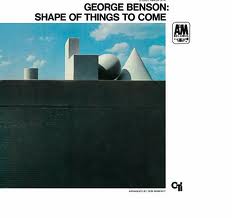
Shape of Things to Come is the fifth studio album by American guitarist George Benson, released in 1968 and arranged by Don Sebesky. It was his first album for A&M Records and his first album to be produced by Creed Taylor, who would remain his producer until 1976.

Beyond the Blue Horizon is a 1971 studio album by American jazz guitarist George Benson. It was his first album released by CTI and included organist Clarence Palmer, drummer Jack DeJohnette, bassist Ron Carter, and percussionists Michael Cameron and Albert Nicholson.
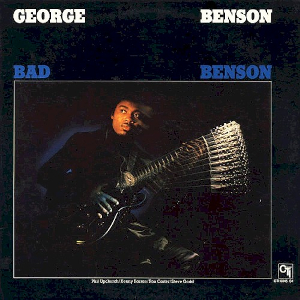
Bad Benson is a 1974 studio album by American guitarist George Benson, released on CTI Records.
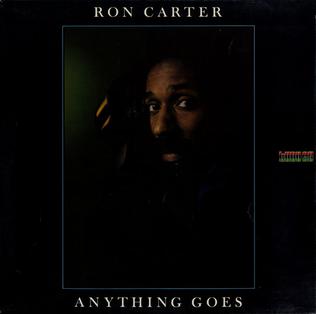
Anything Goes is an album by bassist Ron Carter recorded at Rudy Van Gelder's Studio in New Jersey in 1975 and released on the Kudu label.

Blue Moses is an album by American jazz pianist and composer Randy Weston featuring performances recorded in 1972 and released on the CTI label.
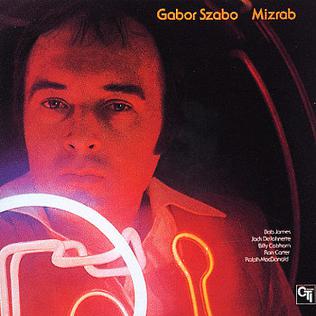
Mizrab is an album by Hungarian guitarist Gábor Szabó featuring performances recorded in 1972 and released on the CTI label.

Free is an album by Brazilian jazz drummer and percussionist Airto Moreira with performances recorded in 1972. The album was released by CTI Records and reached No. 30 on the jazz album chart at Billboard magazine.

Giant Box is a double album by American arranger/conductor and composer Don Sebesky recorded in 1973 and released on the CTI label.

Good King Bad is the thirteenth studio album by American guitarist George Benson featuring performances recorded in 1975 and released by CTI Records in 1976.

Benson & Farrell is an album co-led by American guitarist George Benson and jazz saxophonist and flutist Joe Farrell; both artists had previously released several albums on the CTI label and had also contributed to the albums Free, CTI Summer Jazz at the Hollywood Bowl, and Giant Box.
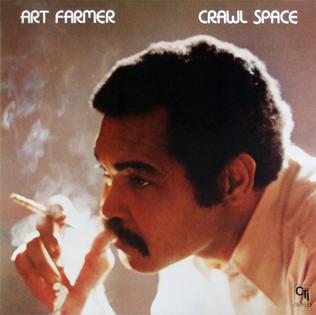
Crawl Space is a 1977 album by American flugelhornist Art Farmer released on the CTI label.
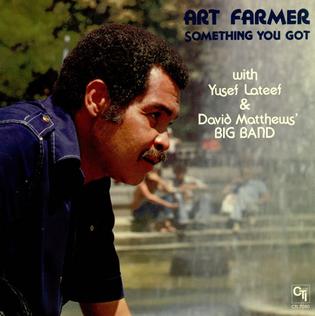
Something You Got is an album by American flugelhornist Art Farmer featuring performances with Yusef Lateef and the David Matthews Big Band recorded in 1977 and released on the CTI label.




















